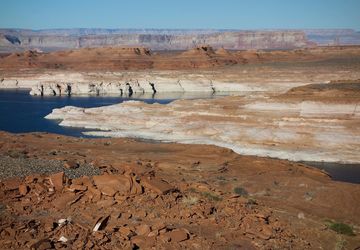Recent Center News
Salmon fishing banned again in California; a growing movement against conservation; the history of the Columbia River’s “salmon wars”; new costs and restrictions for oil and gas drilling on public lands; and other recent environmental news from around the West.
Stanford economist Paul Milgrom won a Nobel Prize in part for his role in enabling today’s mobile world. Now he’s tackling a different 21st century challenge: water scarcity.
Image Credit: Getty Images
The future of water in the Southwest was top of mind for participants and attendees at the 10th Annual Eccles Family Rural West Conference.



